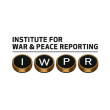Organizații vizate:
Achiziții de bunuri și contractări de servicii
- Detalii
- Categorie: Achiziție bunuri, Contractare Servicii
Terms of Reference (ToR) Final Evaluation of the Action „Resocialization and education programs in the Goian juvenile prison”
Informațiile prezentate în articolul de mai jos pot să nu mai fie actuale sau să nu mai reflecte activitățile și programele curente. Anunțul este păstrat în arhivă pentru a asigura transparența și accesul public la informațiile despre inițiativele și proiectele implementate anterior.
| Project Title | Resocialization and education programs in the Goian juvenile prison |
| Project country/locations: | Moldova
(Chisinau Municipality, Nisporeni County, Straseni County, Anenii Noi County, Cimislia County) |
| Budget of the Action to be evaluated: | Total Project Costs: EUR 106.939,45
Renovabis: EUR 95.000,00 EU Contribution: EUR 11.939,45 |
| Date of the Action to be evaluated: | Start: 01.12.2021
End: 30.11.2024 |
| Deadline for submission: | 30.11.2024 |
- INTRODUCTION AND BACKGROUND
Moldova has established a comprehensive legal framework aimed at safeguarding the rights of children, in alignment with relevant United Nations guidelines and conventions. Despite this robust legal foundation, the practical implementation of these laws is often inadequate. Public institutions and stakeholders frequently face capacity constraints, impeding their ability to effectively address the protection needs and challenges faced by children and youth. This discrepancy between policy and practice is evident in various sectors, including the juvenile justice system. Although the system has adequate legal provisions, their enforcement is insufficient to ensure the protection and rehabilitation of incarcerated children and youth.
The existing gaps in the juvenile justice system highlight the need for more effective implementation of laws and procedures that support the social reintegration of child and youth offenders. Currently, there is a significant lack of inter-institutional procedures to coordinate educational, psychological, and social assistance services for these individuals, both pre-sentencing and post-detention. The absence of such procedures hinders the collaborative efforts of central and local public authorities, which is crucial for the holistic rehabilitation and reintegration of young offenders into society.
The Regina Pacis Foundation has been actively involved in providing vocational training to children from the Detention Center for minors and young people in Goian since 2013. The primary aim of these vocational courses is to empower and equip these young individuals with valuable skills, increasing their chances of successful reintegration into society upon their release.
Over the years, Regina Pacis has made a significant impact on the lives of children and young people through vocational training. To date, 181 children have benefited from a wide range of vocational courses.
These vocational courses play a crucial role in providing practical skills and knowledge to children who have had interactions with the justice system.
By equipping them with vocational skills, Regina Pacis aims to break the cycle of reoffending, offering these children a pathway to a better future. In the context in which the Regina Pacis Foundation has already been carrying out vocational training for minors in Goian since 2013, the Foundation decided to approach the reintegration of minors in a broader sense.
Therefore, the current project aims to address the gaps stated above by developing and implementing inter-institutional procedures that ensure cohesive and comprehensive support for child and youth offenders. By fostering collaboration among various stakeholders, including educational institutions, social services, and the penitentiary system, the project seeks to bridge the divide between policy and practice. The primary targets of this initiative include 50 detained children and youth, three vocational education providers, and 115 key stakeholders. These stakeholders encompass staff from the National Administration for Penitentiaries, the Department of Social Work, the Department of Social Assistance and Family Protection, probation counselors, officers and prison agents, and counselors from the National Agency for Employment.
The implementation of this project is carried out in partnership with the Regina Pacis Foundation in Moldova. By leveraging the expertise and resources of this organization, the project aims to enhance the capacity of public institutions and stakeholders, ensuring a more effective and coordinated response to the needs of incarcerated children and youth. Through this collaborative effort, the project aspires to create a sustainable framework that supports the social reintegration of young offenders, thereby contributing to their long-term well-being and reducing recidivism rates.
In light of the aforementioned points, as well as the fact that the funds for the third phase of the project are sourced from German government funds, the Regina Pacis Foundation is committed to conducting a comprehensive final evaluation of the project. The final evaluation of the project is a critical step in ensuring its success and sustainability. It will provide a comprehensive understanding of the project’s impact, promote accountability, and guide future efforts.
Overall Objective:
To increase the social inclusion of children from penitentiary by strengthening their access to qualitative education and vocational training, thus facilitating their participation in professional qualification programs during detention.
Specific Objective 1:
50 children from penitentiary have access to social reintegration programmes through adapted vocational education programmes;
Specific Objective 2:
New procedures are developed with stakeholders, shared with the community, and advocated for with decision-makers to support children in conflict with law to reintegrate into the society;
Specific Objective 3:
Detained children and stakeholders in contact with children receive capacity building trainings, in order for children to know better their rights and for professionals – to maintain the necessary professional competence of staff in accordance with the UN Convention on the Rights of the Child and in line with the developed inter-institutional mechanism.
Actions in brief:
- Delivering social reintegration and vocational education training to children detained in Goian.
- Developing, piloting and monitoring of inter-institutional procedures.
- Training for professionals in order to maintain the necessary professional competence of staff in accordance with the UN Convention on the Rights of the Child and in line with the developed inter-institutional procedures
- Trainings for young detainees. Since children do not benefit from a pre-release training, they lack basic knowledge of their rights (i.e. where and how they can obtain an identity card, their place of residence, to whom they can go to for social assistance, who can be approached for medical guarantees etc.).
For more detailed information, please refer to the project documents that will be made available upon assignment.
- OBJECTIVES OF THE EVALUATION
The main objectives of this evaluation are to provide Renovabis and the implementing partner with:
- an overall independent assessment of the past performance of the projects (with a focus on the current project, but also taking into account the two previous projects) to be evaluated, paying particular attention to its results measured against its expected objectives; and the reasons underpinning such results;
- key lessons learned, conclusions and related recommendations in order to improve future Actions.
The main users of this evaluation will be the Renovabis and Regina Pacis Foundation.
- APPROACH AND METHODOLOGY
The evaluation will be undertaken in line with OECD/DAC standards for evaluations (Applying Evaluation Criteria Thoughtfully, 2021). Furthermore, the evaluation needs to include key informant interviews with partner staff and an examination of partnership principles. Due to vulnerability of target groups safeguards for confidentiality, privacy, and respect of dignity need to be respected. In addition, certain groups may not be interviewed directly but questions may be transmitted by the staff or case worker due to their safeguarding needs.
It is up to the evaluation team to design a final methodology and detailed evaluation questions (based on the guiding questions below) during the inception phase, so the team feels well placed to respond to the guiding questions outlined below in the most appropriate and credible manner.
The evaluation/review consists of several phases:
- Briefing
- Contract and Kick-Off Meeting: Contract is signed and a discussion of the assignment takes place. First documents, including available data, are provided to the evaluation team.
- Desk Study: The evaluation/review team studies all necessary project/programme documents; re-construct and analyse the intervention logic/programme theory and theory of change and its assumptions. Existing data needs to be analysed and interpreted.
- Inception-Phase: In the inception report the evaluators will describe the design of the evaluation and will elaborate on how data will be obtained and analysed. The use of a data collection planning worksheet or a similar tool is required. First interviews take place.
- Field-Phase: Data and information needs to be gathered, analysed and interpreted. It is expected that the evaluation will include quantitative and qualitative data disaggregated by sex.
- Final Draft Report: Submission and presentation of final draft report, inclusion of comments from partners and contractor.
- Final Report: Submission of final report, see reporting requirements under point 4).
For the different phases it is expected that data and information will be obtained through different methods such as: analysis of documents, structured interviews, semi-structured interviews face-to face or by phone, group discussions, others.
All data collected needs to be disaggregated by gender. It is expected that the evaluation/review team will present concrete recommendations which are addressed to the specific stakeholders.
- EVALUATION QUESTIONS
| Criteria | Guiding evaluation questions |
| Relevance | 1. To what extent were the activities tailored to respond to the needs of the target groups/beneficiaries?
2. What could be improved in next project phases? 3. To what extent was the project design appropriate to reach policy reforms? 4. To what extent are the objectives of the Action still valid for the partner organization and the beneficiaries? 5. Are the activities and outputs of the programme consistent with the overall goal and the attainment of its objectives? |
| Effectiveness | 6. To what extent were the objectives of the programme achieved?
7. What are the (concrete) contributions of interventions of the programme for achieving the objectives? 8. What factors were crucial for the achievement or failure to the project objectives? 9. To what extent were the target groups reached? 10. To what extent did participants participate in and assume ownership of the project’s activities? 11. To what extent did the project encourage positive involvement or support from stakeholders |
| Impact | 12. What are the positive and negative, primary and secondary long-term effects produced by the programme, directly or indirectly, intended or unintended?
13. To what extent has the project interventions contributed to the juvenile justice system development? 14. To what extend has the inter-institutional coordination for protection and re-integration of youth in conflict with the law been improved? 15. Was there enough flexibility in the project to respond to changes in needs or increased vulnerability? |
| Sustainability | 16. To what extent are the target groups capable and prepared to receive the positive effects of the programme intervention without support in the long term?
17. To what extent has the local capacity of partners been strengthened at organisational levels? 18. What elements of the project activities are likely to continue after funding ends? 19. What are the biggest obstacles to the continuation of project activities post-funding? 20. How can these obstacles be addressed to ensure the sustainability of the project? |
| Coherence | 21. How well does the project align with other ongoing initiatives and programs in the country/with Regina Pacis Foundation other projects?
22. Are there any overlaps or gaps between this project and other similar projects? 23. To what extent is the project in line with national policy and strategies? |
| Efficiency | 24. What processes and methodologies were used to maximize efficiency in project implementation?
25. How were these processes monitored and adjusted to improve efficiency? 26. How flexible and adaptable has the project been in response to changing circumstances and unforeseen challenges? 27. What adjustments were made during the project to enhance efficiency? |
- DELIVERABLES
The consultants will submit the following reports:
- An inception report, clearly outlining the details of the evaluation methodology and approach based on preliminary findings from the document review. The report should include a tentative outline, a detailed work plan with key milestones as well as an evaluation matrix with key and specific evaluation questions, their expected data collection source and method of data collection. Interview guides and/or questionnaires should also be annexed to the draft inception report. The report should be shared with Regina Pacis Foundation for consultation and approval before finalisation.
- A final draft evaluation report, including a draft executive summary.
- and the final evaluation report, according to formal requirements of the back donor
All reports need to be written in English.
The executive summary should summarize key findings and recommendations and needs to be submitted as part of the final draft report.
The findings and recommendations of the draft final report and final report have to be structured according to the evaluation questions.
- RESPONSIBILITIES AND CONDITIONS
Confidentiality of information: All documents provided to the evaluator(s) and all data collected during field research must be treated as confidential and used solely for the purpose of this evaluation. Respondents shall not be identified in reports without their explicit written permission. Photo, video, and other research data that can be traced back to individual research participants shall be anonymized unless agreed otherwise, in writing, with the person concerned.
Ownership of data, findings, products: Regina Pacis Foundation retains full ownership of all data, findings, and products produced as part of this assignment.
Support by Regina Pacis Foundation: All relevant documents including programme proposal, reports, etc. will be provided for the consultant(s). Field research can be supported and facilitated by Regina Pacis based upon the methodology and approach defined. Relevant contacts of other stakeholders will be shared upon the consultant(s)’ request.
Safeguarding and protection: For the time of the assignment, the evaluator commits to safeguarding and protection policies and procedures that are shared and reiterated during the preparatory phase.
- TIMELINE
| Phases/ Timeline | Timeline | Actions |
| Procurement Phase | July-Aug |
|
| Preparatory Phase | August/September |
|
| Inception Phase
|
Sept/Oct |
|
| Feedback Inception Phase | Sept/Oct |
|
| Evaluation Phase: Moldova | October |
|
| Report Writing and Feedback Phase | November |
|
| Presentation of final draft report | November |
|
| Submission of final evaluation report | 30.11.2024 |
|
The consultant is requested to include a suggested timeline in their technical offer.
- THE EVALUATOR/EVALUATION TEAM
Key Qualifications in the evaluator/evaluation team should be:
- Relevant academic degree (master level)
- A minimum of three years’ experience and expertise
- Team leader has conducted at least three evaluations in the last five years ideally in the relevant field
- Team member has participated in at least three evaluations ideally in the relevant field
- Knowledge of Moldova
- Experience in project cycle management
- Experience and expertise in evaluating cross-cutting issues
- Experience in social science methods
- Knowledge of juvenile justice
- Knowledge in state decision-making / advocacy
- Excellent oral and written Romanian, Russian and English
- Sound MS Office and IT skills
- APPLICATION PROCESS
Interested applicants should submit their application via e-mail to project coordinator – Cristina Varzari at cvarzari@reginapacis.org with the subject line ‘Final Evaluation Renovabis”. Deadline for submission of applications is 21.08.2024. Consultants who do not submit their quotation by this deadline will not be considered.
The application should include as a minimum:
- CVs of the consultants
- Cover letter which clearly summarizes relevant experience
- Technical proposal including:
- Methodology and tools
- Detailed work plan incl. timeline
- Examples of relevant previous work
- Financial proposal (in MDL) including a clear breakdown of costs including fees and other expenses such as travel, accommodation and transportation.
- Centrul Național de Prevenire a Abuzului față de Copii (CNPAC) angajează psiholog/ă în cadrul Centrului regional de asistență integrată a copiilor victime/martori ai infracțiunilor din zona de Nord
- Specialist/ă Audit Intern
- Fundația pentru Dezvoltare din Moldova angajează Coordonator/Coordonatoare de proiect
- Public Institution National Environmental Projects Implementation Office (P.I.NEPIO) - announcement of selection of international consultant
- Agenția de Guvernare Electronică relansează concursul de angajare pentru suplinirea postului vacant de analist/analistă sisteme informaționale (încasări plăți MPay)
Achiziții și Contractări pe Telegram
Nu pierdeți niciun anunț de achiziție bunuri/contractare servici postat pe site! Urmăriți Canalul dedicat pe Telegram:

Top organizatii
2025 CIVIC DIGITAL SOLUTIONS
Email: support@portal.civic.md








